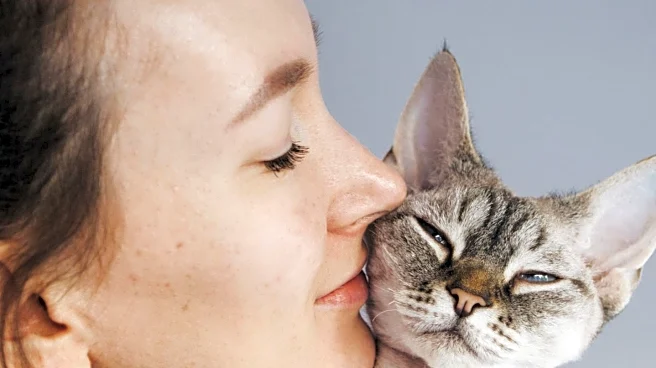What's Happening?
A study conducted by psychiatrist John McGrath and colleagues at the Queensland Centre for Mental Health Research suggests that owning a cat could potentially double the risk of schizophrenia-related conditions. The analysis reviewed 17 studies from various
countries, including the US and UK, and found a significant association between cat ownership and increased risk of schizophrenia-related disorders. The research points to the parasite Toxoplasma gondii, commonly transmitted through cats, as a possible factor influencing mental health. However, the study acknowledges inconsistencies and the need for more high-quality research.
Why It's Important?
The study's findings could impact public health recommendations regarding pet ownership and mental health. If further research supports the link between cat ownership and schizophrenia risk, it may lead to changes in how pet-related health risks are communicated to the public. The study also highlights the importance of understanding environmental factors in mental health, which could influence future research and policy decisions. Additionally, the potential link between T. gondii and mental disorders may drive further investigation into the parasite's effects on human health.
What's Next?
The researchers call for more comprehensive studies to better understand the relationship between cat ownership and mental health. Future research may focus on identifying specific risk factors and mechanisms by which T. gondii affects the brain. Public health agencies might consider revising guidelines on pet ownership, particularly for individuals at risk of mental health disorders. The study may also prompt discussions on the ethical considerations of pet ownership and its impact on human health.
Beyond the Headlines
The study raises broader questions about the role of environmental factors in mental health and the potential for stigmatization of pet ownership. It challenges assumptions about the harmlessness of common pets and underscores the complexity of mental health disorders. The findings may also influence cultural perceptions of cats and their role in human society, potentially affecting pet industry practices and consumer behavior.















